
Vulnerability and Health Law: News Releases and In the News

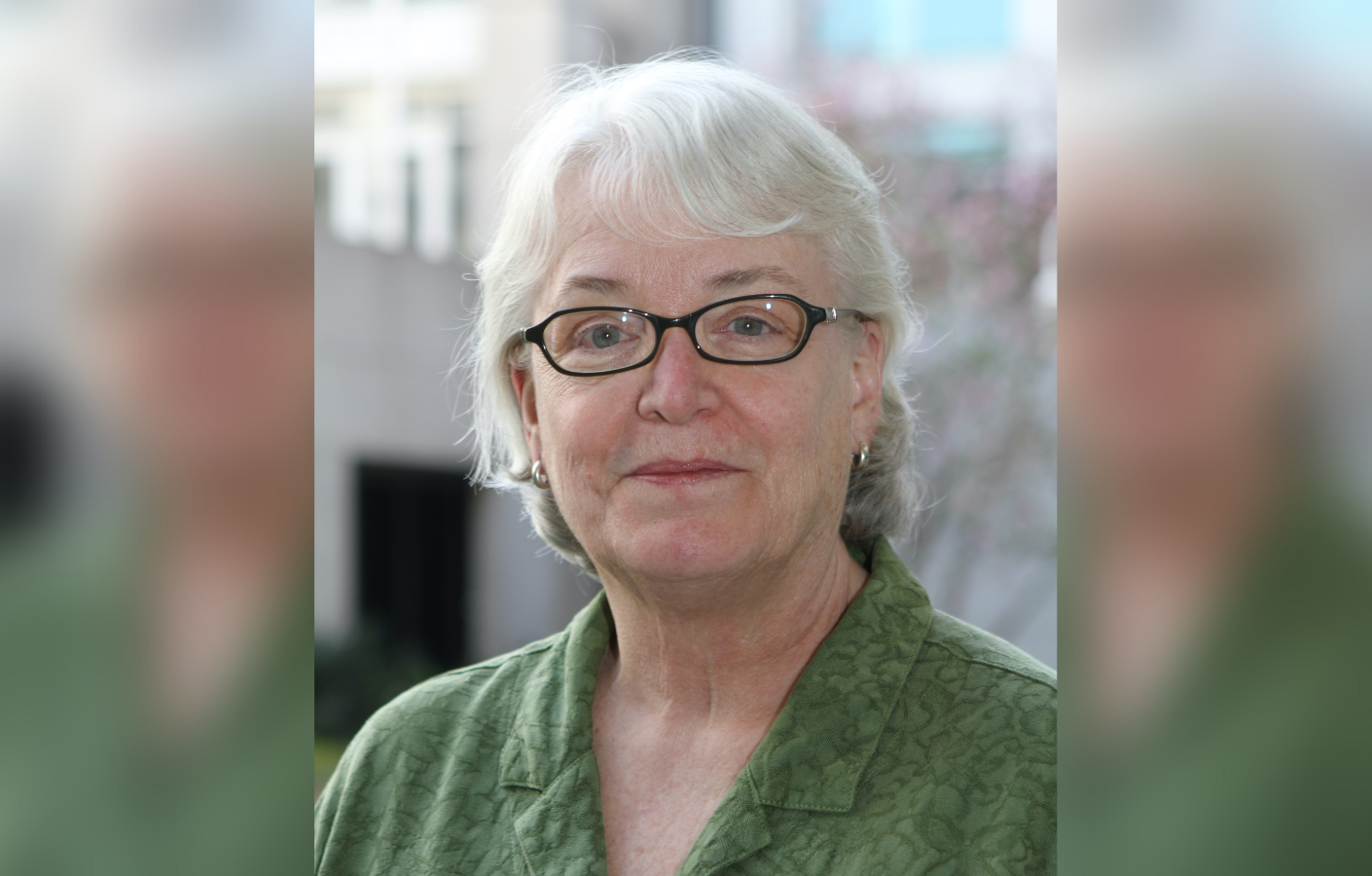
Martha Albertson Fineman named to Academy of Arts and Sciences
Martha Albertson Fineman, Robert W. Woodruff Professor of Law, is among four Emory professors recently elected to the American Academy of Arts and Sciences
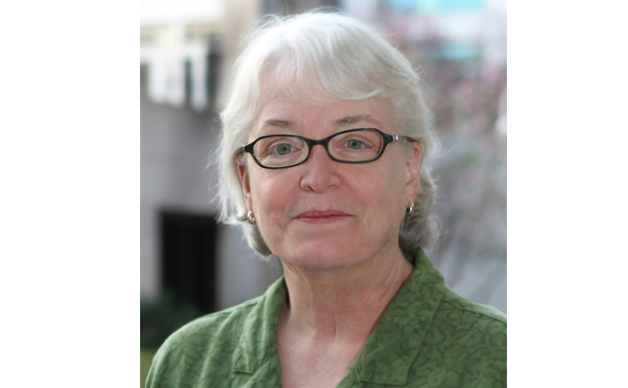
Fineman among most cited in family law and critical theories of law
Latest Sisk ratings rank most-cited law faculty
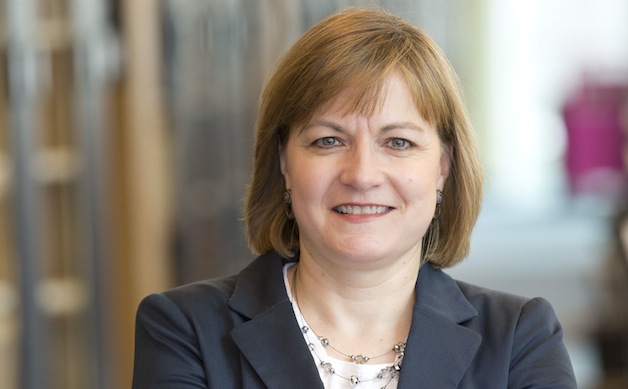
Price: It's doubtful Biden can challenge states' anti-mask policies
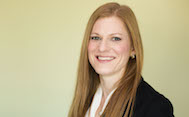
Satz: Private employers can mandate COVID-19 vaccinations
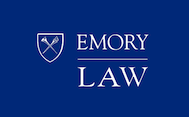
Pinder: Governor unlikely to challenge schools' mask requirements

Satz: Could states, employers require COVID-19 vaccinations?
COVID vaccinations are currently being administered under emergency conditions to quell a worldwide pandemic. But going forward, could employers or schools require proof of vaccination? " I think there would be some legal risk to an employer that chose to make a vaccine mandatory," Emory Law Professor Ani Satz tells Fox 5 Atlanta. "But I think there's some legal arguments to support that choice."

Price: State COVID-19 restrictions based on science will withstand lawsuits
As long as a state can show its coronavirus rules are based on scientific evidence, it's unlikely a court will overturn the restrictions, Emory Law Professor Polly Price tells Law 360.
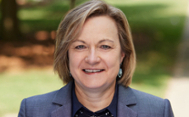
Price: Biden's COVID-19 plans are what health officials want
The major points of President Joe Biden's COVID-19 plan are what many state and local health officials have been waiting for, Asa Griggs Candler Professor Polly Price tells NBC. That is: increased testing, boosting PPE supplies via the Defense Production Act and using the CDC's expertise to distribute the vaccine.

Price: There's still time for a better COVID-19 response
"The next presidential term will commence exactly one year after the first confirmed U.S. case of COVID-19," Asa Griggs Candler Professor of Law Polly Price writes for the American Constitution Society. "The U.S. has since recorded the highest number of COVID-19 deaths and infections in the world. Because an estimated 90 percent of Americans remain vulnerable to infection, the next administration will continue to face the greatest public health threat in more than a century, even if a vaccine does become widely available."

Price: Why don't people quarantine? They aren't being paid
Conflicts over remote work and leave are the most common type of COVID-19 employment litigation in the United States, according to The Atlantic. Asa Griggs Candler Professor of Law Polly Price was quoted in a story about how to contain COVID-19 until widespread vaccination is achieved. Isolating those who are exposed is effective, but enforcing it is difficult. "We don't really pay people to stay at home to quarantine," Price said.

Price: Fines may help state's effort to enforce masks to slow pandemic
Connecticut will begin issuing $100 fines to those who refuse to wear masks in public to slow the spread of the coronavirus, NBC news reports. Professor Polly Price says the fines could be effective in much the same way speeding tickets encourage people to slow down. However, she was dubious on whether it is a "good use of police time." It may be more effective for businesses to adapt a policy on masks similar to the "no shoes, no shirt, no service" concept.
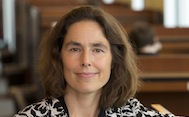
Vertinsky: FDA COVID-19 plasma decision may be political, rushed
Professor Liza Vertinsky joined two other law professors in an op-ed that criticizes the FDA's recent announcement that it would authorize emergency use of investigational convalescent plasma as a treatment for COVID-19. They question whether the decision reflected extreme political pressure and a departure from evidence-based standards.

Kemp lawsuit to prevent mayors from requiring masks must prove 'irreparable harm,' Price says
Gov. Brian Kemp has sued Atlanta Mayor Keisha Lance Bottoms and challenged restrictions she implemented, which include an ordinance mandating residents wear masks to help stem the spread of COVID-19. It's part of a growing clash between the governor and municipalities over who has authority over how the state handles the ongoing pandemic. Kemp may not win an injunction unless he can meet standard of "irreparable harm," Professor Polly Price tells TIME magazine.
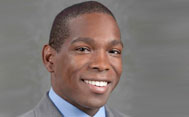
Smith: Kemp chose ‘weakest case’ in lawsuit that challenges mask mandate
Associate Professor Fred Smith Jr. was invited to WABE’s "Political Rewind" to discuss Georgia Gov. Brian Kemp's executive order that says cities may not pass laws requiring the public to wear face coverings to prevent the spread of COVID-19. Kemp later said mask mandates were unenforceable and ineffective. "From a legal perspective, he picked literally the weakest case," Smith said.

Price talks with Dan Abrams on the importance of masks during pandemic
Professor Polly Price spoke with Dan Abrams on how face coverings work to prevent the spread of COVID-19, and Georgia Gov. Brian Kemp's order that says municipalities can't pass laws requiring them in public. "The Governor of Georgia does not have authority to override local face mask requirements," Price tweeted. "Do the right thing."

Price's blog previews new book 'Plagues in the Nation'
"Plagues in the Nation" is a narrative history of America through major outbreaks, one that examines how law and government affected the outcome of the epidemics that struck America, and how those outbreaks have in turn shaped our government. Professor Polly Price's book examines efforts to control COVID-19 and also, the panic that resulted when Ebola arrived in n America.

State COVID-19 quarantine efforts violate constitutional right to travel, Price says
As states try to enforce 14-day #COVID-19 quarantines for travelers from areas where the coronavirus rate is spiking, Professor Polly Price says such pronouncements bump up against U.S. citizens' constitutional right to travel from one state to another. "No state can prevent you from coming in," Price tells NBC news. "What these states are doing is imposing conditions on that travel. When it goes from 'we're going to request that you self-quarantine for a period of time' to 'we're going to arrest you or fine you if you don't,' that's when constitutional issues become tricky."
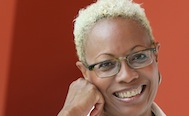
Floyd's killing, COVID-19 create ‘perfect storm’ of tension
Professor Dorothy A. Brown talks with Yahoo News about how both the trauma of George Floyd's death and the disproportionate deaths of black people caused by COVID19 are affecting the mental health of the black community.

A history of law, face coverings, public health in the U.S.
Professor Polly Price and her research assistant Patrick Diaz 22L examined how state governments required and enforced the wearing of face masks during public health crises in the history of the United States, in an essay published by the American Constitution Society.

States may create new COVID-19 laws, but Supreme Court involvement unlikely, Price says
As governors balance protecting public health against individual liberties, federal lawsuits are stacking up, including an estimated 240 based on civil rights, USA Today reports. Emory Law Professor Polly Price notes the U.S. Supreme Court declined to hear a Pennsylvania case that challenged a governor's order to close nonessential businesses. But given the impact of the virus on public health issues, "I tend to think there will be some new law made only because there are new scenarios that courts haven’t encountered before," she said.

In sprint for COVID-19 vaccine, research collaborators may run into IP problems
The rush to collaborate on vaccines and treatments for Covid-19 may lead researchers to overlook precautions they normally would take concerning ownership of intellectual property, Bloomberg Law reports. Associate Professor Liza Vertinsky agrees. "When you're doing things quickly in response to an emergency, all the problems you normally have in collaborations get worse."

Price's Carnegie Fellowship informs forthcoming book, Plagues in the Nation
In 2017, Emory Law Professor Polly Price was named an Andrew Carnegie Fellow. Building on her interest in writing on how governments confront contagious diseases, she did research at the U.S./Mexico border with the CDC and public health departments, which will inform her upcoming book, Plagues in the Nation.

Price explains why some Americans resist wearing masks to prevent spread of COVID-19
Resistance to wearing masks to prevent spread of the coronavirus is a very American phenomenon, the BBC reports. Asa Griggs Candler Professor of Law Polly Price explains the backlash.

Emory Law Helps Medical Residents with Estate Planning During COVID-19 Crisis
The Emory University School of Law Volunteer Clinic for Veterans (VCV) launched a program to provide advance directives, wills, and other estate planning assistance to medical residents completing their training at Emory University School of Medicine.

Price: President can't require states to reopen for business
Professor Polly Price says President Trump's statement that he has total authority to declare states open for business isn't correct. "Congress could conceivably legislate to override state control of commerce, but not the president by himself," she told the Dallas Morning News, for a story concerning restarting commerce during the COVID-19 pandemic.

Our constitutional duty is to not endanger others, Price says
Some rural Americans see the corona virus as a distant, perhaps overblown, crisis. But as cases climb across the U.S. we should recall our constitutional duties “include not endangering others,” Professor Polly Price tells the Christian Science Monitor.

Why isn't there a national lockdown? Price explains
Although it may seem logical for the the president to announce the entire country should go into lockdown, the legalities aren't that simple, Professor Polly Price tells CNN.

White House can't enforce blanket national quarantine, Price says
As more states start to issue stay-at-home orders, rumors have spread that the country is under a lockdown, something the Federal Emergency Management Agency has debunked on its website. Professor Polly Price tells NPR any such power lies with the states. "If you're talking about quarantine in terms of encouraging people to stay home or closing businesses ... I think from the White House that can be advisory only and that those are exclusively state powers."

Price: Practices that made a difference in the 1918 epidemic
Professor Polly Price, who's writing a book on epidemics, tells WABE 90.1 what policies made a difference in the 1918 pandemic--globally and here in Georgia.

Price: Governors largely control states' public health policies
While President Trump says he wants the country "opened up and raring to go" by Easter, that decision will largely be made by governors. "State and local governments’ primary obligation, their primary responsibility, is the health of their populations," Professor Polly Price told Time magazine. The success of social distancing already relies mostly on the honor system she says. But mixed messaging from federal state or local politicians could lead people to ignore social distancing guidelines altogether.

How a fragmented country fights a pandemic
"The U.S. legal system has been here before--just over a century ago, during the pandemic influenza of 1918–1919, the most severe pandemic in recent history," Professor Polly Price writes in an essay for The Atlantic. "Then, too, public officials faced constraints on their knowledge, authority, and capacity to deal with the crisis. The result was a patchwork approach that radically, if temporarily, changed American life."

Price: What powers do local, state and federal governments have in a public health crisis?
As part of the National Constitution Center's Interactive Constitution series, Professor Polly Price talks with host Jeffrey Rosen and Professor Ed Richards about what powers local, state, and federal governments have to manage a public health crisis and the legal and constitutional rights Americans maintain.

Price: CDC can help governors make tough decisions on COVID-19 closures
This weekend, governors varied widely on their COVID-19 stances: some took measures to shut down restaurants and bars, while others tweeted about being in public and "supporting local businesses." Because of federalism issues, the White House can't do much to force closures, said Professor Polly Price. But the CDC can model responsible action, she said. "The strong direction of the CDC is really helpful here because these are very unpopular decisions--and brave decisions, as far as I'm concerned--to close down public gathering," she said. "To the extent that they need political cover for doing so, if the CDC is giving them this advice, that could give them legal cover."

Price: For health officials, enforcing quarantine relies on the honor system
Health officials nationwide are gauging how to enforce quarantine, and what to do when people don't follow those rules. Right now, it's pretty much the honor system, Professor Polly Price tells the Wall Street Journal. "Public-health people themselves can't arrest someone or force them to stay somewhere, and they try to use that as an absolute last resort."

Price: How do cities handle coronavirus quarantine for the homeless?
Most of the thousands of Americans currently under quarantine are at home, but what about the homeless? Professor Polly Price tells CityLab that urban centers with large homeless populations are likely already considering how to humanely handle a shelter outbreak.

Price: City's attempt to block coronavirus patients presents rare legal question
Costa Mesa's attempt to block state plans to house coronavirus patients there presents a rare legal question, the New York Times reports. "This is a new one in terms of claiming a right not to have infectious disease introduced into your community," said Emory Law Professor Polly Price. Although cities and towns once claimed "an absolute right" to guard against disease, she said, state-level control over isolation and quarantine has been the norm for more than a century.

Price weighs in on Costa Mesa's attempt to block moving coronavirus patients there
A federal judge directed federal and state officials to answer the questions of Costa Mesa, California, residents about plans to bring Americans who have tested positive for the coronavirus to a closed mental-health facility in the city, the Washington Post reports. But the judge also cautioned that the city does not have veto power over state and federal quarantine decisions. Emory Law Professor Polly Price agrees. "There isn’t really a federal order to challenge here because the key fact was that California's state public health department . . . they're in complete control."

Dedicated quarantine centers a relic of the past, Price says
While the U.S. has quarantine "stations" in 20 cities, they're not designed for long-term stays and monitoring, the San Jose Mercury News reports. Federal and state health officials sought to move coronavirus patients to Costa Mesa's 125-acre Fairview Developmental Center, a state-owned facility for people with mental disabilities, which is now empty. "Governments don't keep quarantine facilities readily available," said Emory Law Professor Polly Price. "We don't, as a general rule, have facilities just waiting around just to be used for rarely needed quarantines." State and federal official say by refusing to accept the quarantine, Costa Mesa could threaten the health of the rest of the nation.

Price: Quarantine in the U.S. isn't in the hands of the federal government
A coronavirus quarantine in the U.S. could be difficult, Professor Polly Price writes for The Atlantic. Except at the nation's borders, the federal government isn't in charge. Our defense against epidemic is divided among 2,684 state, local and tribal public-health departments.

Travel ban won't stop coronavirus entering the U.S.
The Trump administration decision to bar entry to foreigners coming from China won't stop the coronavirus from entering the US, experts tell VOA News. "It is true that the fewer people who potentially carry the virus who come into an area, the less likelihood of further spread," said Emory Law Professor Polly Price, a public health expert. "But, of course, we already know it's in the United States."

Price on avoiding panic, containing coronavirus
In seeking ways to contain the coronavirus, U.S. health officials and politicians no doubt are recalling the 2014 Ebola cases. "It was never a huge threat in the U.S., but it caused a huge panic," Professor Polly Price tells STAT. In Dallas, where the first U.S. case of Ebola was detected, immediate family members of the patient and the two nurses who took care of him were quarantined in their homes, but larger measures, including shutting down transit and school closures, were proposed but never ordered. "They worked through that nicely," Price said.

Price explains public health precautions for coronavirus
The CDC is requiring U.S. citizens returning from mainland China to undergo proactive health screenings at ports of entry and spend up to 14 days in self-quarantine--an action it hasn't taken for more than 50 years. While "isolation" refers to separating someone who is already sick, or is believed to be, from healthy people, "quarantine" is used for isolating people that are not yet sick and may never get sick but may have been exposed to something contagious, Professor Polly Price tells ABC News.
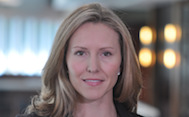
Shepherd on Trump's promise to force drug companies to negotiate
Donald Trump recently vowed to force drug companies to negotiate directly with the government on prices in Medicare and Medicaid. But for that to be effective, the government "must have the ability to not only negotiate prices, but also to put some pressure on drug makers to secure price concessions," Emory Law Professor Joanna Shepherd writes for Morning Consult. "Policy-makers must fully understand what it means for government to negotiate directly with drug makers, and what the potential consequences are for price reductions, access to popular drugs, drug innovation, and drug prices for other consumers."

Price examines Ebola, pandemic law with Emory medical experts at Florida "Back to Class"
On Saturday, January 24, the Emory Alumni Association hosted "Back to Class: South Florida" at the Westin Colonnade Hotel in Coral Gables. The program featured five faculty members sharing expertise on diverse subjects including Ebola, quarantine, infant communication, and the history of Oxford College and Emory.

Price in Time: Mandatory quarantine for nurse Kaci Hickox can influence other states' ebola policies
Emory University law professor Polly Price says if the court decides in favor of the Maine health officials, other states may "feel free to post armed guards outside of asymptomatic people's houses, or confine them in an institution."

Price quoted in Time on voluntary vs. court-ordered quarantine
Professor Polly Price was quoted in Time magazine in an article about the legalities of quarantine for those who may have been exposed to Ebola. "If healthcare workers resist signing the voluntary quarantine or defy its recommendations after agreeing to it, Emory University law professor Polly Price says that it's likely an official quarantine would be ordered. 'They could go and get a court order to formalize it, possibly even after the fact,' Price says. 'But they would likely seek a formal quarantine.'"

Price in WSJ: How does U.S. administer quarantine during health emergencies? (subscription required)
The revelation that a second Texas health-care worker diagnosed with the Ebola virus flew from Dallas to Cleveland and back has raised a looming question: Why wasn't she quarantined before boarding a plane? The answer lies in a layered health-care system that relies on close coordination between state, local and federal authorities to be effective in stopping disease. Professor Polly Price says the federal government's quarantine power derives from a late 19th-century compromise between state and federal lawmakers.

Price, Emory attorneys discuss legalities of Ebola treatment, quarantine
A top lawyer at Emory University said Tuesday that even with a decade of planning, the school's health care system had to deal with unexpected issues--including legal matters--as its campus hospital began treating Americans who contracted the Ebola virus in West Africa. A panel discussion at Emory Law included Professor Polly Price, an expert in public health, and a lawyer who serves on the school's police force.

Price in the Wall Street Journal: How law informs Ebola response
The aggressive response that health officials have mounted to the Ebola virus in Dallas is likely to prevent a wide-scale outbreak. But multiple snafus reveal some unexpected issues the U.S. would have to prepare for in the event of a larger-scale infectious disease threat, the Wall Street Journal reports. Quarantine is an important element of preventing its spread. "We don't have a lot of experience with quarantining well people," says Emory Law Professor Polly Price.

Price on federal, state law governing Ebola, public health
Laws that authorities may use to prevent an Ebola outbreak in the United States are designed to work best for a disease with a much shorter incubation period, says Emory Law Professor Polly Price. In the U.S., an attorney is provided to someone who wishes to challenge their quarantine or isolation. But, Price said, "Whenever the judges have a public health person in their courtroom telling them there's a threat, they're not going to second guess." Price's public lecture, "Ebola in the U.S." will be held at Emory Law, Oct. 14 More info

Price on Nevada Public Radio: U.S. needs to rethink tuberculosis treatment
Professor Polly Price argues that we need rethink the way we leave detection and treatment of tuberculosis to thousands of small local health authorities across the country. The problem cannot be handled by local government authorities when it is brought in by foreign travelers and spread across the country.

Fragmented U.S. health care unprepared for rising tuberculosis, Price says
Presently, U.S. healthcare is politically and legally fragmented, underfunded and disproportionately strained in many poor communities, making tuberculosis hard to treat.

Fineman in the Guardian: why having children is unlike buying a Porsche
A Harvard professor compared choosing a car to having kids. It's a poor reason to deny maternity coverage to struggling parents
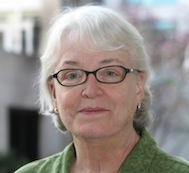
"The Vulnerability Approach" Nordic Journal of Law and Justice features Fineman's work
Nordic women's university features Fineman's work on vulnerability.

Fragmented health care makes tuberculosis hard to treat in U.S., Price writes in Newsweek
Tuberculosis is back, and nastier than ever, Professor Polly Price writes in Newsweek.

Fineman, Marvel dispute claims that coming wave of elderly will swamp healthcare
As we usher in the first health care enrollments under the new Patient Protection and Affordable Care Act -- popularly known as "Obamacare" -- the concern over spiking insurance rates is reaching new heights and generating new fights.

Price receives Robert Wood Johnson fellowship to study tuberculosis at U.S. border
As the debate on U.S. immigration reform continues in Congress, Polly Price, professor at Emory University School of Law, will study a lesser-known, public health component of the issue -- the rise of multidrug-resistant tuberculosis along the southern U.S. border.